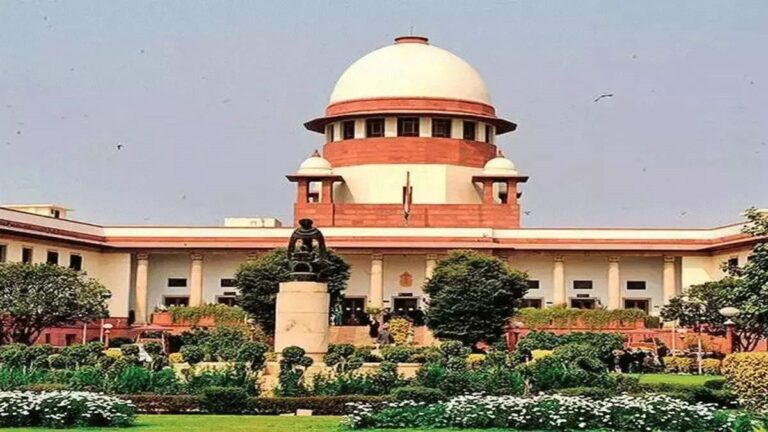भारत सरकार द्वारा प्रस्तुत आयकर विधेयक, 2025 (THE INCOME-TAX BILL, 2025) को आधुनिक कर सुधार के रूप में प्रस्तुत किया जा रहा है, लेकिन इसकी वास्तविकता पूरी तरह विपरीत है। यह विधेयक मेहनतकश जनता, छोटे व्यापारियों और वेतनभोगी तबके पर करों का बोझ बढ़ाने का महज़ एक और प्रयास है, जबकि पूंजीपतियों और उच्च आय वर्ग के लिए विशेष रियायतें दी जा रही हैं।
कर प्रणाली का सबसे बड़ा अंतर्विरोध यह है कि यह उत्पादन में योगदान देने वालों पर कर भार बढ़ा रही है, जबकि उन लोगों को कर छूट दी जा रही है जो केवल पूंजी के मालिक हैं। आइए इसके ऐसे ही कुछ प्रावधानों को देखते हैं:
Section-138:
(a) The gross total income of an assessee includes any profits and gains derived by an undertaking or an enterprise from any business referred to in section 80-IA of the Income-tax Act, 1961.
(b) Such assessee is eligible to claim a deduction from the profits and gains derived from such business for such tax year under the provisions of the said section, if the said Act had not been repealed.
(c) There shall be allowed, in computing the total income of the assessee, a deduction from the profits and gains derived from such business, subject to the conditions that–
(i) The amount of deduction is calculated as per the provisions of section 80-IA of the Income-tax Act, 1961.
(ii) The deduction under this Act shall be allowed only for such tax years, as would have been allowed under section 80-IA of the Income-tax Act, 1961, if the said Act had not been repealed.
इस प्रकार, बड़े उद्योगपतियों को कर छूट, सब्सिडी और विशेष प्रोत्साहन दिए जा रहे हैं, जिससे वे अपने मुनाफे को और बढ़ा सकें। सरकार कर वसूली का बोझ मेहनतकश वर्ग पर डाल रही है और संपत्ति के केंद्रीकरण को बढ़ावा दे रही है।
विधेयक में यह भी स्पष्ट किया गया है कि कॉरपोरेट घराने राजनीतिक दलों को चंदा देकर कर छूट का लाभ उठा सकते हैं।
Section–136:
(1) An assessee, being an Indian company, shall be allowed a deduction for the amount contributed by it, other than by way of cash, during a tax year to a political party registered under section 29A of the Representation of the People Act, 1951, or an electoral trust.
(2) In this section, the word “contribute”, with its grammatical variations and cognate expressions, shall have the same meaning as assigned to it in section 182 of the Companies Act, 2013.
यह स्पष्ट करता है कि पूंजीपति वर्ग और सत्ताधारी दलों के बीच गहरा गठबंधन है, जहां आम जनता से वसूले गए करों का उपयोग सत्ता संरचना को बनाए रखने के लिए किया जाता है।
इसके विपरीत, छोटे व्यापारियों, स्वरोजगार करने वालों और वेतनभोगी तबके के लिए कर अनुपालन को जटिल बना दिया गया है।
Section–276(1):
“Income chargeable under the head ‘Profits and gains of business or profession’ or ‘Income from other sources’ shall, subject to the provisions of sub-section (2), be computed as per either cash or mercantile system of accounting regularly employed by the assessee.”
Section–277(1):
“For the purposes of determining the income chargeable under the head ‘Profits and gains of business or profession’:
(i) the valuation of inventory shall be made at lower of actual cost or net realisable value computed as per the income computation and disclosure standards notified under section 276(2);
(ii) the valuation of purchase and sale of goods or services and valuation of inventory shall be adjusted to include any tax, duty, cess or fee (by whatever name called) actually paid or incurred by the assessee to bring the goods or services to the place of its location and condition as on the date of valuation;
(iii) the inventory being securities not listed on a recognised stock exchange, or listed but not quoted on a recognised stock exchange with regularity from time to time, shall be valued at actual cost initially recognised as per the income computation and disclosure standards notified under section 276(2);
(iv) the inventory being securities other than those referred to in clause (iii), shall be valued at lower of actual cost or net realisable value as per the income computation and disclosure standards notified under section 276(2).
कर अनुपालन नियमों को इस तरह तैयार किया गया है कि पूंजीपति वर्ग अपने वित्तीय प्रवाह को कानूनी जटिलताओं से बचा सके, जबकि छोटे व्यापारियों और वेतनभोगियों को लगातार सरकारी निगरानी में रखा जाएगा।
यह विधेयक न केवल आर्थिक असमानता को बढ़ावा देता है, बल्कि राज्य की भूमिका को भी पूरी तरह बदल रहा है। जब सरकार जनता से अधिक कर वसूलेगी और उसे केवल पूंजीपतियों को राहत देने में इस्तेमाल करेगी, तब सार्वजनिक शिक्षा, स्वास्थ्य और अन्य आवश्यक सेवाओं के लिए बजट कम होता जाएगा।
यह विधेयक केवल पूंजीपतियों को लाभ पहुंचाने के लिए तैयार किया गया है। कराधान का उद्देश्य संसाधनों का पुनर्वितरण होना चाहिए, लेकिन यह विधेयक केवल बड़े उद्योगपतियों और सत्ताधारी दलों को मजबूत करने का काम कर रहा है। मेहनतकश जनता के लिए इस शोषणकारी कर नीति में झुनझुना मात्र है।
(मनोज अभिज्ञान स्वतंत्र टिप्पणीकार हैं)













